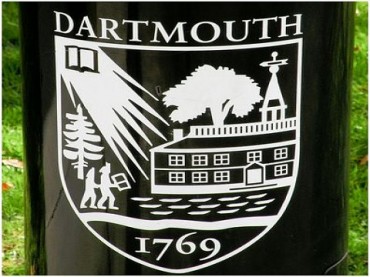
Dartmouth President Phil Hanlon announced the “Moving Dartmouth Forward” at the end of January, and said the school has committed one million dollars per year “to further this diversity initiative.”
Vice provost for academic initiatives Denise Anthony, who’s helping “retain and recruit a diverse faculty,” said “To the extent that we are an educational institution and really training the next generation of thinkers and leaders, it is also necessary to have a diverse faculty to be training those leaders to recognize the value of diversity.”
Her [Anthony’s] goal, she said, is to increase recruitment and retention for underrepresented groups such as African Americans, Hispanics, Native Americans and Asian Americans in a variety of fields and women in science. Any time a department does a faculty search, that department works with the dean to create a search committee. The $1 million in annual funds will go in part toward increasing resources for department search committees, such as websites and literature on unconscious bias that search committees can utilize before they commence a search, she said. These resources will be available to any department.
Success for the program would mean an increase in the number of underrepresented faculty and in their retention, along with the full engagement of those faculty members.
Chair of the African and African American studies program and English professor Gretchen Gerzina, who has been teaching at the College for 10 years, said that she thinks faculty of color leave Dartmouth for a variety of reasons — the relative isolation of campus, the inability for the partners of some professors to secure a job in the area and the draw of bigger institutions who might have attributes, such as a multitude of graduate students, that the College cannot offer.
“If Dartmouth wants to keep somebody, they have the means to do it,” Gerzina said. “The question is if the reasons people are leaving are personal reasons that Dartmouth can’t address.”
Gerzina added that “having a diverse faculty helps expose students to other important viewpoints.” Without such, she says, students won’t be “very well prepared to face the global-wide community.”
Does Prof. Gerzina include in those “other important viewpoints” political and ideological opinions …?
In addition, which is more vitally important to an employer: knowing the skill and material necessary for the job … or having been exposed to a “[racially/culturally] diverse faculty” while in college?
Like The College Fix on Facebook / Follow us on Twitter
IMAGE: Matthew D. Britt/Flickr






Please join the conversation about our stories on Facebook, Twitter, Instagram, Reddit, MeWe, Rumble, Gab, Minds and Gettr.